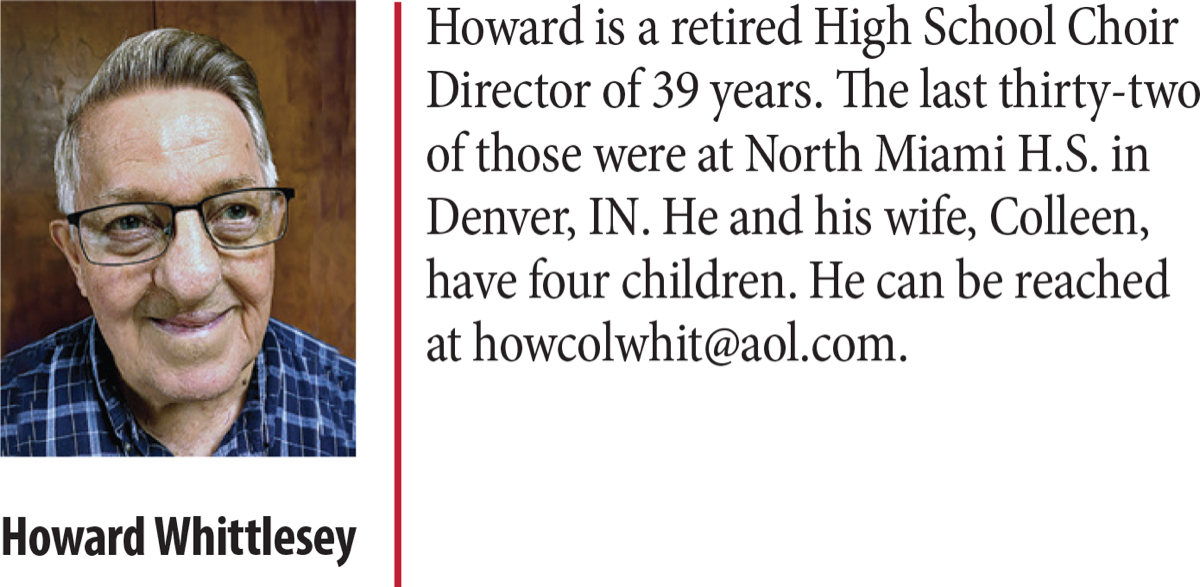By Howard Whittlesey
Synopsis: When sinners respond to the gospel message, they embrace the most powerful message the world has ever known.
The question that must be answerable by scriptural proofs is this: “What, in your conversion, makes the difference?” That’s an ice-cold question without the groundwork, so we shall seek to lay that groundwork as effectively as we can derive from verses of Scripture.
How long has it been since you have even heard of the five steps of conversion? It seems that few Bible study sessions or sermons ever consider such, at least not collectively. When did you last discuss them? It seems that few if anyone knows or remembers? There is a lot about which to preach and teach in God’s word, isn’t there? Yet, if the word is not presented—even touched upon—to do with conversion, how can we expect our numbers to grow? Are we going to have to wait till baby Sammy and Susie grow up and do as their parents did? Is that our next hope of using the baptistry? Anyway. . .
Seldom did this feature get mentioned without hearing Romans 10:17, and rightfully so. It shows that hearing is where the groundwork begins. Without hearing, faith will probably never take its place in the soul of man. Yet, there are other passages that might be considered as well to substantiate this groundwork. “Hear, O Israel: The Lord our God is one Lord” (Deut. 6:4). Perhaps one should be apprised of Deuteronomy 32:39, which says, “See now that I, even I, am He, and there is no god with me: I kill, and I make alive; I wound, and I heal: neither is there any that can deliver out of my hand.” It would seem that the pronouns should be greatly emphasized in this passage. There’s nothing in all of creation like the capital “G” God of the Bible. When one sows the word, the hearer should biblically “understand it” (Matt. 13:23), “receive or accept it” (Mark 4:20), “keep it, and bring forth fruit with patience” (Luke 8:15). When did you hear on this wise?
Why not start again with Romans 10:17 in which Paul said that “Faith cometh by hearing”? This is obviously the work of the Holy Spirit. Man hears an awful lot of things by which no faith whatsoever comes. Yet, upon understanding, receiving, and keeping that which one hears, faith cometh. This hearer might be like those of Acts 2:37. Now wait a minute: Don’t just say they heard and believed. Luke said that they were pricked in their heart. These listeners understood, received, and were ready to keep it. Right?
Here’s the “kicker!” Why did Jesus say, “Except ye repent, ye shall all likewise perish” (Luke 13:3, 5)? Sounds easy, huh? Hold on! Time and time again, God called upon Israel to “turn from” sin and “turn to” Him—obviously with the intention of doing His will forever. Is that the way it works in our day? The true repenter has removed his “immoral” garments and has put on spiritual clothes. He is different! He is committed!* If that isn’t true, then he hasn’t repented. So, will he not perish—with or without confession and/or baptism? Isn’t that what Jesus meant?
The classic biblical confession which no one ever hears these days is found in Acts 8:37. Be honest: Have you ever heard this confession to precede a baptism? Usually the preacher or person performing the baptism asks the potential convert a question that is answered with a “Yes.” Right? Do we really speak where the Bible speaks? Hm-m-m. This is a matter for another discussion. Mark tells us that the subjects of the baptism of John confessed their sins (Mark 1:5). When was the last time you saw that done? Peter, on two separate occasions, said, “Thou are the Christ, the Son of the living God” (Matt. 16:16), also, “And we believe and are sure that thou art that Christ, the Son of the living God” (John 6:69). Baptism did not follow, for that came not until the day of Pentecost (Acts 2).
The book of Acts has many references to this very necessary event. Jesus, in His great commission, told the apostles to baptize those whom they taught (Matt. 28:19). Mark quotes His having said, “Whosoever believeth and is baptized shall be saved; but he that believeth not shall be damned (Mark 16:16). Oh, what that word”but” doesn’t teach! Right? That, too, is a matter for another discussion.
Rehearse your own experience: Did you, in fact, faithfully execute the action of all the above?
Hold on! We’re not through. We titled this article, “In Word, Or In Power?” We’ve only completed the “in-word” part. Now let’s look at the “in-power” part.
It centers on the promise of God expressed through the words of Peter on the day of Pentecost: “And ye shall receive the gift of the Holy Ghost” (Acts 2:38). Does anyone not know for certain that the power comes only from God? John quoted Jesus in John 14:16-17. “And I will pray the Father, and He shall give you another Comforter, that He may abide with you for ever; Even the Spirit of Truth; whom the world cannot receive, because it seeth Him not, neither knoweth Him; but ye know Him; for He dwelleth with you, and shall be in you.”
Yes, we know that the apostles were the only recipients of this promise, but eliminate the miracles and the inspired guidance they received in revealing the truth, and we still have the gift of the Holy Ghost that is conferred upon the saints. So, does the gift of the Holy Ghost not comprise His presence, His dwelling, and His empowering of saints unto the good life and works that are to substantiate the conversion that took place in their souls? Is this not required so as to evidence a true change “from” sin “to” God? If not, then what else could Paul mean in 1 Corinthians 6:19-20? Who would dare state that the consecrated saint is not guided into all the truth, a la John 16:13?
What? know ye not that your body is the temple of the Holy Ghost which is in you, which ye have of God, and ye are not your own? For ye are bought with a price: therefore glorify God in your body, and in your spirit, which are God’s (1 Cor. 6:19–20, KJV).
Howbeit when he, the Spirit of truth, is come, he will guide you into all truth: for he shall not speak of himself; but whatsoever he shall hear, that shall he speak: and he will shew you things to come (John 16:13, KJV).
James and Peter put it simply. So shall we. “Be ye doers of the word, and not hearers only, deceiving your own selves” (Jas. 1:22). “Save yourselves from this untoward generation” (Acts 2:40). So, your conversion “in word” and “in power”—makes all the difference.


